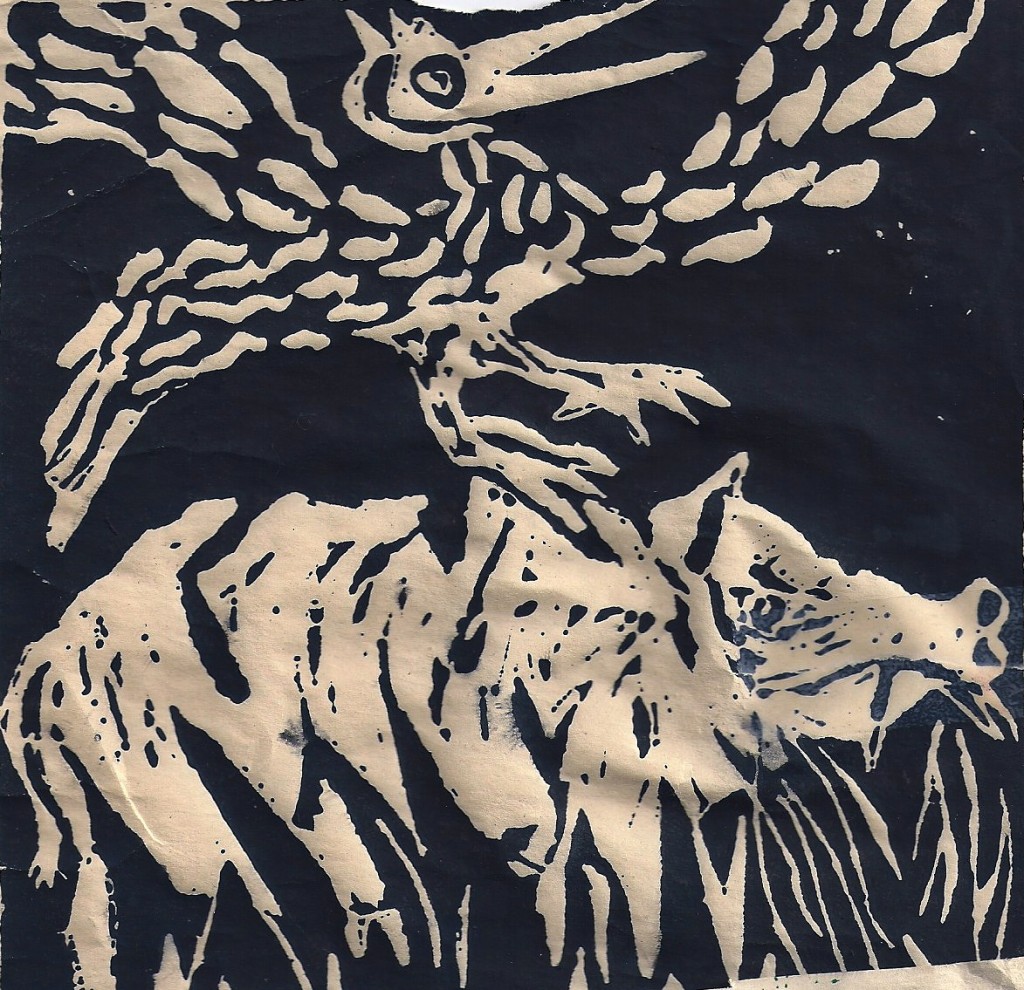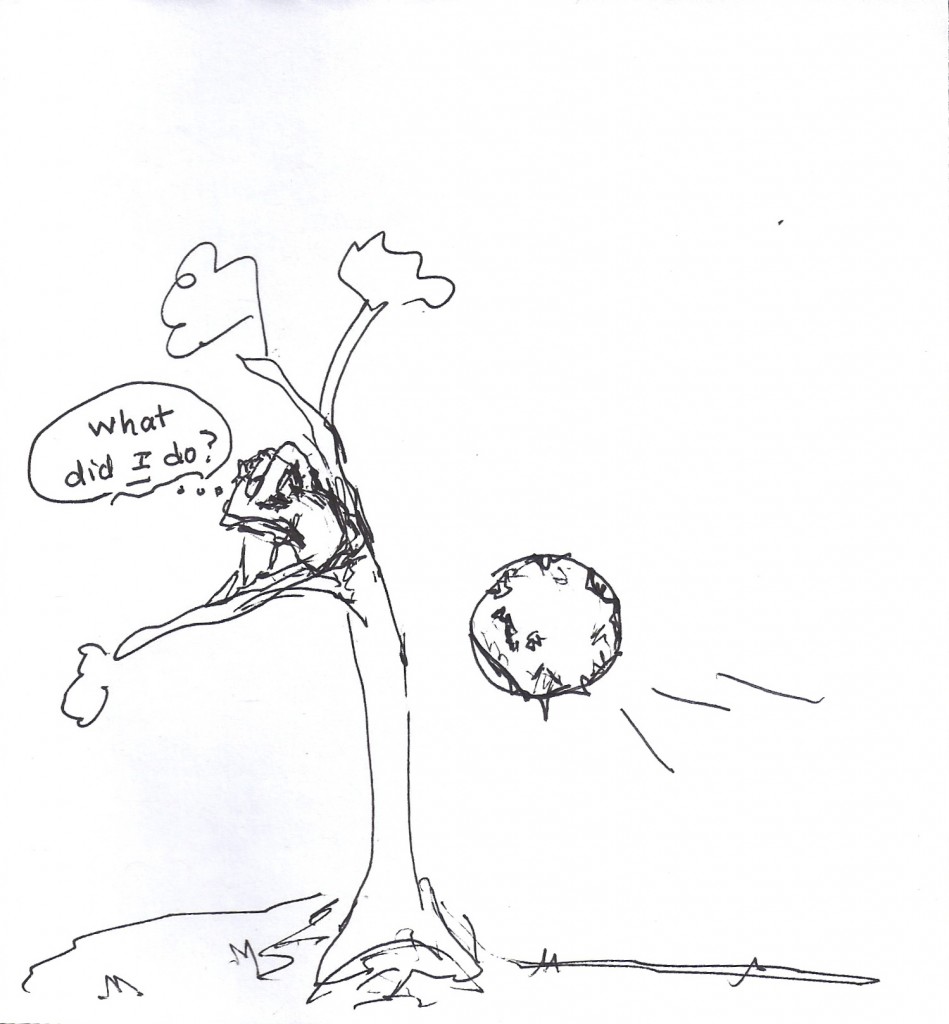Hello again! It’s been way too long since I posted here. But I’m going to start anew and release my guilt!
Whoosh — it’s gone. Now I can celebrate coming back.
Wheeeeeeee! Fireworks! I release them here.
RELEASE is the word I’ve chosen to color my life for the 366 days of 2012.* I’m excited about it! It’s a great word for writers. Heck, it’s a great word for anybody. There’s so much we need to let go of: our worries, our guilt, our fears, our inhibitions, our babies (not literally — I mean what we write or create that needs letting go of to move into the light). There’s a lot to explore and discover in this word.
To begin, I’m tickled to move into the new year exploring this kind of release:
LAUGHTER
Sometimes all I need in life is to LIGHTEN UP — not like shining a light on something (which is also kind of wonderful), but the floaty-uppy kind of light. Like feathers and balloons and snowflakes that dance around so much they never even touch the ground. Release. Poof.
What’s Funny?
Just hearing laughter can make us laugh! When I go to a comedy, I always think it’s funnier if others around me are laughing too. It’s catchy. If you don’t believe me, check out this youtube video. I can’t watch it without the chortles coming out of me, too.
Baby Laughing Hysterically at Ripping Paper
Laughter transforms me from a grumpy poop to somebody I want to be around. I even wrote a story inspired by that idea!
PHOENIX and PIG
I made this my SELF! I got to dig into a block of linoleum with chisels, carving away what I didn’t want to show. I inked it with a roller and laid the tile upside down on a piece of paper.
When I looked at the result, a picture book manuscript about the power of laughter practically popped onto the computer. Like an alive kind of surprise present (A good one — not, say, a spider down my back). Maybe the picture will inspire you, too – feel free to use it to make up your own story. (See Using Art to Create Story)
How to Write Funny
Writing about humor is one thing. What about being funny? What makes other people laugh? What makes books like Captain Underpants hysterical to some and agonizingly stupid to others?
Such good questions. I don’t know.
This blog from ehow.com (no author listed) describes 12 tips for writing humor. Great advice!
As you research techniques to get funnier, remember that writing is special. Humorists you see or hear perform can throw their arms and bodies around, and make weird faces. They can pause exactly long enough to zing you with the punchline. That funky noise made by blowing a fart sound through your tongue and teeth? How are you supposed to write that?! The printed word is simply not all that funny to look at.
Throw rocks — from a distance.
You know when a failed joke gets this response: “I guess you had to be there.” Our job as writers is to make the “there” come alive. We create the scene. I can’t remember who first said that plot was all about chasing a character up a tree and then throwing rocks at him. The trick is to stand far enough back.
As long as we don’t let the reader get too close to the reality of the misery, wretched life situations can be screamingly funny. For real-life story, the distance usually comes with the passage of time. (The expresssion “you’ll laugh about this later” sounds horribly insensitive at the time of hardship, but it IS those difficult events that give rise to the funniest stories about ourselves.)
With fiction, however, we writers can make terrible, painful, agonizingly embarrassing stuff happen to our characters and it can be funny in the moment. The distance part of humor comes from everyone knowing it’s not true! Although “author” Lemony Snicket narrates the multiple volumes in A Series of Unfortunate Events as if they were true and therefore terribly disturbing treatises on the human condition, readers everywhere acclaim the real author, Daniel Handler, a master of comedy.
Like Handler, it’s vital to keep emotional distance. If the misery is too realistic, readers may start feeling sorry for your character, and that’s not funny! When humor goes out the window, lots of emotions can come in — especially anger against that mean, manipulative writer.
Yikes!
Don’t laugh at your own jokes
Just don’t. (You can laugh on the inside, just don’t show it). Don’t let your characters laugh either. This is not funny! This is HORRIBLE. You’ll be tempted to be kind to your characters and give them a sense of humor about their lives. No. Stay mean.
Put the uncommon together
Things that don’t normally “fit.” As you may know by now, I love to be in plays, and I even direct sometimes. I’m a big woman, and get cast as a contrast to other actors because it’s funny. BIG wife, tiny little husband. When we see the little mouse beat up on the huge cat? It’s funny! Not so much the other way around.
But avoid cliché
A word of caution here: it’s really easy to fall into cliché (like the examples I just gave) and the joke is old before you’ve told it. In the biz, that’s called a cheap laugh. Some people LOVE hearing the same joke over again (and telling it!), but not usually much after the age of six.
It’s ironic. Despite laughter being a huge release and terribly healthy, we develop a little shell of protection against laughter that builds up with repetition. Slipping on banana peels, pants falling down: these are very funny things, but so common that you have to treat them with special creativity to make them appear new.
You can get funnier if you practice. Write. Revise. Edit. But even so … ALAS!
Not Everyone is Going to Get It
We don’t all share the same funny bone. And trying to explain to someone why you think a joke or a situation is funny is a sure way to kill it.
All I know is sharing a sense of humor with someone is one of the best gifts from the universe. When I find an author who shares my sense of humor, it’s like I’ve found a new and treasured friend. I look forward to spending time with him or her!
Bruce Coville writes books that crack me up — so does Louis Sachar. What about Arnold Lobel’s Frog and Toad? I bet most of us have our favorite comic strips that we treasure seeing everyday. (Mine are Zits and Baby Blues and Bill Waterson’s Calvin and Hobbes). I just realized something: these are all men writers! Does that mean that men are funnier than women when they write? What’s THAT all about?! That’s it — I’m complaining to God.
No, wait! Hilary McKay, who wrote Saffy’s Angel and that whole wonderful series about the Casson family, totally cracks me up. Whew! And of course there’s many many more — who? (All right, here’s a guilty secret: for humorous romance? Jennifer Crusie all the way. AND the queen of all — Georgette Heyer.)
Really, tell me who your favorite funny authors are! Release them to me!
*For more on How To Choose a Word for the Year, click here. Theresa Ceniccola explains the concept very well, though you may want to know there is some religious content on this site.




